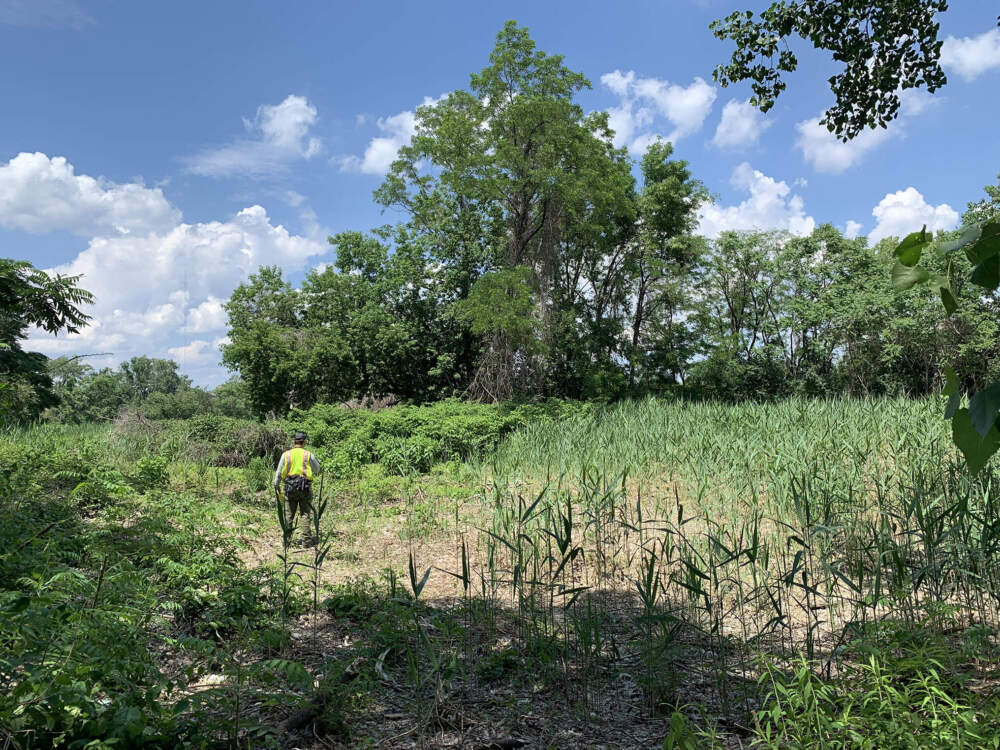Advertisement
Everett aims to make waterfront park more accessible and climate resilient

Residents of Everett have limited green space and waterfront access, in part because much of the city's waterfront is a designated industrial zone. Now the city is working to enhance Gateway Park, one of the public green spaces along the Malden River. It received a $750,000 federal grant to make the park more welcoming to people and more resilient to climate change.
The community hopes the improvements can address its “concerns about the lack of green space and open space, the lack of opportunities for shading or for cooling,” said Marissa Zampino a community organizer with the Mystic River Watershed Association, which partnered with the city in applying for the grant.
The park was built two decades ago; as part of the development plan for the Gateway mall, the developers were required to build publicly accessible waterfront green space. Later, the company added walking paths, bike lanes and designated parking spots.
Still, Zampino said many people don’t know that Gateway Park is open to the public. When she surveyed community members, Zampino said they were excited to learn about enhancements to the park.
“One of the big things that did come out of [those conversations] was, like, please give us fun and cool and safe and amazing green spaces and open spaces,” she said.
The grant money will be used to restore a creek that runs through the area, remove invasive species such as phragmites and trees of heaven and plant about 1,500 native trees such as oaks, maples, birches and willows.
“You'll see more insects, more butterflies, more bird life there, and we will provide a boardwalk eventually,” said Tom Philbin, a conservation agent for the city of Everett. “You'll see a beautiful river with alewife and other fish that come up to breed.”
Philbin expects that other wildlife such as bees, birds, bats and frogs will also move back into the area once the creek is restored.
The city also plans to restore the wetlands near the creek, which will require special evaluation because the site is contaminated — the 23.5 acre park used to be part of a former Monsanto chemical plant. The idea is to reconnect the park wetland with its greater wetland system, which its cut off from by the Revere Beach Parkway. The wetlands will help slow down stormwater, increase storage capacity, and filter it before it flows to the Malden river.
The restoration is part of a bigger plan for the city’s riverfront aiming to connect green spaces together, including Gateway Park and Rivergreen Park.
Philbin said he saw more families, dog walkers, bird watchers and runners use Rivergreen Park after the city enhanced it. He hopes to do the same for Gateway Park.
